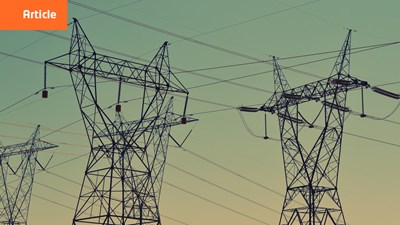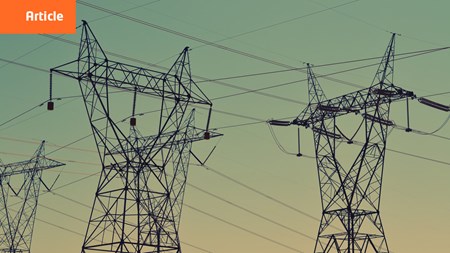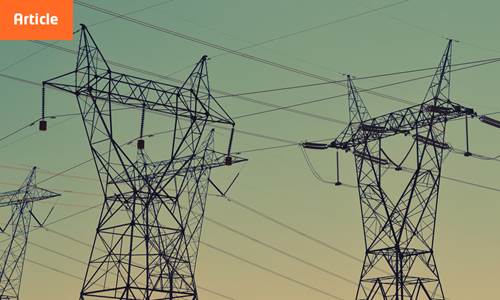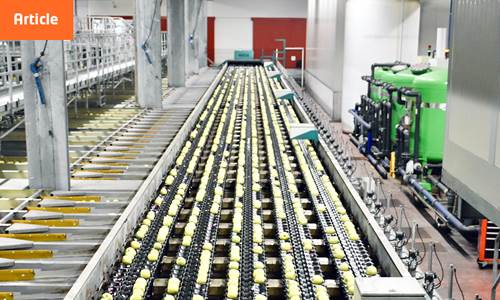
Power to Heat - Effective Grid Regulation
The PARAT High voltage electrode boiler can be a direct contributor to the grid stability. But how does it work, and what is grid regulation exactly?

Grid regulation, also known as power system regulation or grid control, refers to the management and control of electrical power within an interconnected power system or electrical grid. The primary goal of grid regulation is to maintain the balance between electricity generation and consumption to ensure a stable and reliable power grid, something that becomes increasingly challenging with renewable energy sources.
Some key aspects of grid regulation:
- Frequency control
The frequency of an electrical grid is a crucial parameter that needs to be maintained within a specific range (e.g., 50 Hz or 60 Hz). Any deviation from the nominal frequency may have adverse effects on the performance of the grid and may result in a power outage. - Grid stability
Stability is crucial for reliable power delivery. Various factors, such as sudden changes in load, faults, or fluctuations in renewable energy sources, can impact the grid stability. - Integration of renewable energy
With increasing integration of renewable energy sources like hydro, solar, and wind, grid regulations become more challenging due to the variability and intermittency of these sources.
By utilizing a PARAT high-voltage electrode boiler, there are many ways to use electricity more responsibly, secure grid stability, and increasingly utilize the renewable energy produced on a much larger scale.
Here are some benefits of utilizing the PARAT high-voltage electrode boiler:
- Grid flexibility
High-voltage electric boilers can be used as a form of demand response. When there is excess electricity on the grid (perhaps due to high renewable energy generation), the electrode boiler can be activated to convert this surplus energy into heat, which can then be used for steam and hot water production. - Energy storage
The PARAT High-voltage electrode boiler can serve as a form of energy storage. During periods of low electricity demand, when renewable sources are generating excess power, or when the energy prices are low, the electrode boiler can be used to convert electricity into thermal energy. This energy can be stored as for example hot water and utilized when the energy prices are higher - helping balance both the grid and the financial load of heating steam or hot water. It is important to mention that our boilers are not a battery and processes like storage would demand additional components and solutions. - Renewable energy
The variability of renewable energy sources like wind, hydro or solar can create challenges in optimal utilization. Electrode boilers can act as a flexible load that can be modulated based on the availability of renewable energy. This helps in utilizing renewable energy when it is abundant and reducing consumption during periods of low renewable energy generation – keeping your total CO2 emissions as low as possible. - Reduced greenhouse gas emissions
By utilizing renewable energy when available, the overall carbon footprint associated with steam and hot water production can be radically reduced compared to traditional fossil fuel-based boilers. - Additional revenue streams*
Active grid regulation is a service that your local energy provider may offer to ensure a stable frequency. Rapid regulation capability is essential for maintaining stability within a very short timeframe, making our High-Voltage Electrode Boiler an ideal solution. Some of our customers intentionally oversize the boiler's capacity, leveraging grid regulation as an additional revenue stream. This strategy provides them with flexibility to regulate output beyond their immediate needs, ensuring stable and reliable operations while also enabling quick response regulation within minutes.
*We cannot guarantee this as a financial benefit, and you are responsible for investigating this possibility and assessing the specific situation in your area.
Would you like to explore the possibility to create new revenue streams and cut emissions at the same time? Consult with us to find the most suitable solution for your operation.














